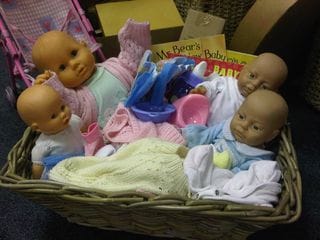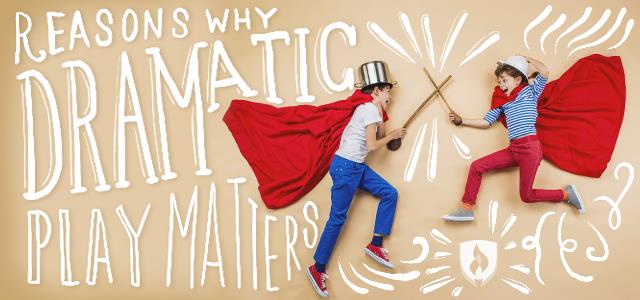Dramatic Play
Over the last term I have been visiting Nursery and Reception classes and offering to carry out an ECERS-3 ‘Early Childhood Environment Rating Scale’. This involves observing practice for at least 3 hours to capture evidence to rate against a standardised assessment tool. The sub scales of this tool evaluate:
- Space and Furnishings
- Personal Care Routines
- Language and Literacy
- Learning Activities
- Interaction
- Program Structure
This is a widely used universal tool and has been mentioned recently by Julian Grenier in his blog about his outstanding setting, Sheringham Nursery School.
In this article, I thought it would be timely to focus on ‘Dramatic Play’ from the ECERS-3 document. With the online Talk for Writing Early Years training currently taking place, this is an ideal time to reflect on the resources and opportunities we provide our children to develop their creativity and communication through pretend play.
What is ‘Dramatic Play’?
Dramatic play is pretending or making believe. This type of play occurs when children act out roles. Children must be free to use materials in their own way, as part of their own make-believe play.
Resources
A deconstructed role-play area with enhancements supports creative pretend play.
The ECERS-3 states excellent practice as:
- A dramatic play area should include enhancements which are many and varied. These could include housekeeping toys or materials from other themes such as different kind of work, fantasy and leisure.
- There should be at least four examples to represent diversity in dramatic play. For example, dolls of different races/cultures, foods of different cultures, equipment used by people with disabilities.

- Staff talk to children about print and numbers in dramatic play in a way that is meaningful to the children e.g. help children make signs and price tags for shop play, pretend to phone people using a homemade telephone book. These may be demonstrated in the display or in props that have been added to allow acting out current topics, or in what is talked about in the classroom.
Alistair Bryce-Clegg wrote an interesting blog about superhero and weapon play, which you may find informative if you are considering adding these enhancements to your provision.
https://abcdoes.com/abc-does-a-blog/2017/03/11/i-hope-thats-not-a-gun/
Dramatic play can help you meet your curricular goals and build your children’s developing literacy skills. It allows children to experiment with purposes for literacy they’ve seen at home, to recognise that different tasks require different texts, to produce a wide variety of texts, and to act out stories they have heard.


